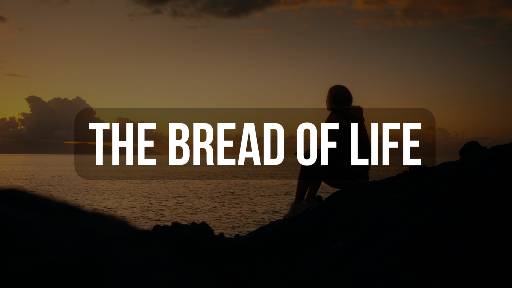-
You Must Try This Bread Series
Contributed by Mark A. Barber on Jul 29, 2018 (message contributor)
Summary: Too often we are too earthly minded to be any eternal good.
You Must Try This Bread
John 6:22-40
Introduction
Last week in the sermon “It Ain’t a Haint”. we talked about Jesus coming out to rescue his petrified disciples who were struggling for their lives in the storm on the lake by coming out to them walking on the top of the storm tossed Sea of Galilee. Jesus had sent them away earlier alone so that the crowds who were about ready to arrest Jesus and make Him king would not interfere with their leaving. This probably had left the disciples with a storm of questions as to why Jesus did not come no permit them to stay with Him when it appeared that everything they had been hoping for in the coming of the Messiah was about to be realized. I suggested that Jesus might have sent the storm to get the disciples mind off of the events of the day. Nothing makes one take their mind off something than danger which demands all attention.
Exposition of the Text
This week we find Jesus on the other shore. If verse 59 covers all these verses, then Jesus was at the synagogue in Capernaum teaching. Would this also make this the Sabbath day? If so, then the disciples were laboring on the Sabbath day which began at sunset the night before. If this was the case, and it certainly may not be, then what we learn is that Jesus is the source of the true Sabbath as they had no rest until Jesus calmed the sea.
The people who were on the other side of the lake were shocked that Jesus was not with them. Where was He? They were about to arrest Him and make Him king. How did He get away? There was no other choice but to get into the boats which had come over from Tiberius and cross back over to Capernaum to wait for Jesus. What a surprise it must have been for them to find Him already there. They ask Him “How did you get here?” In a sense they were also asking why He had left them.
Jesus, as He often did, did not answer their question. Instead he bluntly tells them that they had come for the wrong reason. They came because their belly was filled with the loaves he had given thanks over. They had failed to understand the significance of the sign He had done. They had set their eyes upon an earthly king and Messiah, one who would make His people prosperous and full by overthrowing the Romans and Herod and setting up a Messianic kingdom. But kingdoms of this world rise and fall just as people are born and die.
Instead Jesus challenges them to work for the imperishable food which leads to eternal life. Later on in this passage Jesus would identify Himself as this food. Jesus says that He is the One Whom the Father has sealed. We think of things like USDA certified food, or kosher food, or the Good Housekeeping seal of approval. What Jesus is saying as the bread of life is that He is God the Father certified nourishment to His people. What higher seal of approval could one get? Jesus is the food which gives eternal life. We see the outline of the Father’s seal in the other gospels at the baptism of Jesus and upon the Mount of Transfiguration. In this gospel, it appears later in response to Jesus’ prayer to the Father to glorify His name, to which the Father replied: “I have glorified it before, and I will glorify it again.” Of course this is looking forward to the cross when Jesus would lay Himself down as the Passover sacrifice. This sacrifice was eaten after the blood was poured over the doorpost and lintel of the house. This of course is a spiritual eating and is equivalent to believing on the Lord Jesus Christ.
In response, the Jews ask Him what they must do to do the works of God. This is a typically Jewish approach to salvation that was based upon Divine-Human co-operation. If one could keep the Law of Moses and live a good life, they could earn the life of the kingdom to come. There still had to be an element of grace too as no one could keep the Law perfectly. This is where the sacrificial system came in. Also there was trust in being God’s chosen people through Abraham on which they relied.
But Jesus answer comes as a shock. If one wants to do the work of God, they must simply believe in Jesus. “Is that all? Surely there is more we can do than this” was probably their response. No it is by faith alone, and even this work of faith is God’s gift as we learn elsewhere in Ephesians. Because this is a radical change in thinking, they demand more proof from Jesus. They weren’t satisfied with his multiplication of loaves the day before. They reminded Him that Moses had given their fathers manna to eat.

 Sermon Central
Sermon Central


